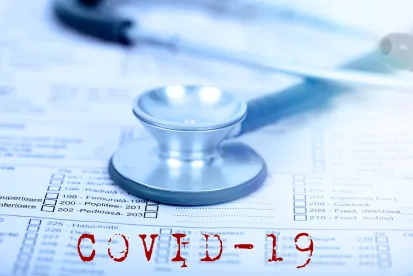Are Michigan’s Enhanced Price Gouging Provisions Undone?
As much of the country remains under various and often overlapping states of emergency, one Governor’s powers have been limited by a state supreme court. On October 2, 2020, the Michigan Supreme Court held that Michigan Governor Gretchen Whitmer did not have authority to issue or renew COVID-related executive orders beyond April 30, 2020. The Court stated that “our decision today . . . leaves open many avenues for our Governor and Legislature to work together in a cooperative spirit and constitutional manner to respond to the COVID-19 pandemic.”
Governor Whitmer has faced immense backlash from those questioning her authority to extend Michigan’s coronavirus emergency declaration and issue COVID related executive orders. However the Governor has maintained that the Emergency Management Act of 1976 (EMA) and the Emergency Powers of the Governor Act of 1945 (EPGA) give her the authority to do so. In a sharp rebuke, the Michigan Supreme Court concluded that “the executive orders issued by the Governor in response to the COVID-19 pandemic now lack any basis under Michigan law.” In a written statement, Governor Whitmer stated she “vehemently disagree[s] with the court’s interpretation of the Michigan Constitution. Right now, every state and the federal government have some form of declared emergency. With this decision, Michigan will become the sole outlier . . . .”
Michigan’s Supreme Court ruling, the full effects of which are not yet known, may have an impact on the enhanced price gouging provisions the state had in place until June 12, 2020. On March 10, 2020, the same day that she declared a state of emergency, Governor Whitmer issued Executive Order 2020-08, putting enhanced restrictions on price gouging into effect. The enhanced price gouging provisions were extended by a series of executive orders through June 12, 2020. Under the enhanced provisions, “[a] person must not resell a product in this state at a price that is grossly in excess of the purchase price at which the person acquired the product.” The order further provided that “[a] person must not offer for sale or sell any product in this state at a price that is more than 20% higher than what the person offered or charged for that product as of March 9, 2020, unless the person demonstrates that the price increase is attributable to an increase in the cost of bringing the product to market or to an extraordinary discount in effect as of March 9, 2020.”
Given that the Court found that Governor Whitmer lacked authority to issue COVID related executive orders beyond April 30, 2020, the question arises whether the enhanced price gouging provisions also ceased on April 30, 2020. The Court’s ruling has no effect on the enhanced price gouging provisions that remained in place up until April 30, 2020. Nonetheless, Michigan consumers are not without protection. Under Michigan’s Consumer Protection Act, the state defines an unfair, unconscionable, or deceptive trade practice to include “[c]harging the consumer a price that is grossly in excess of the price at which similar property or services are sold.” Mich. Comp. Laws §445.903(z)
The limits of emergency powers have become a hot topic during the pandemic. As the pandemic continues, businesses need to stay current with respect to changes that may result from orders being challenged and rescinded.







 />i
/>i

